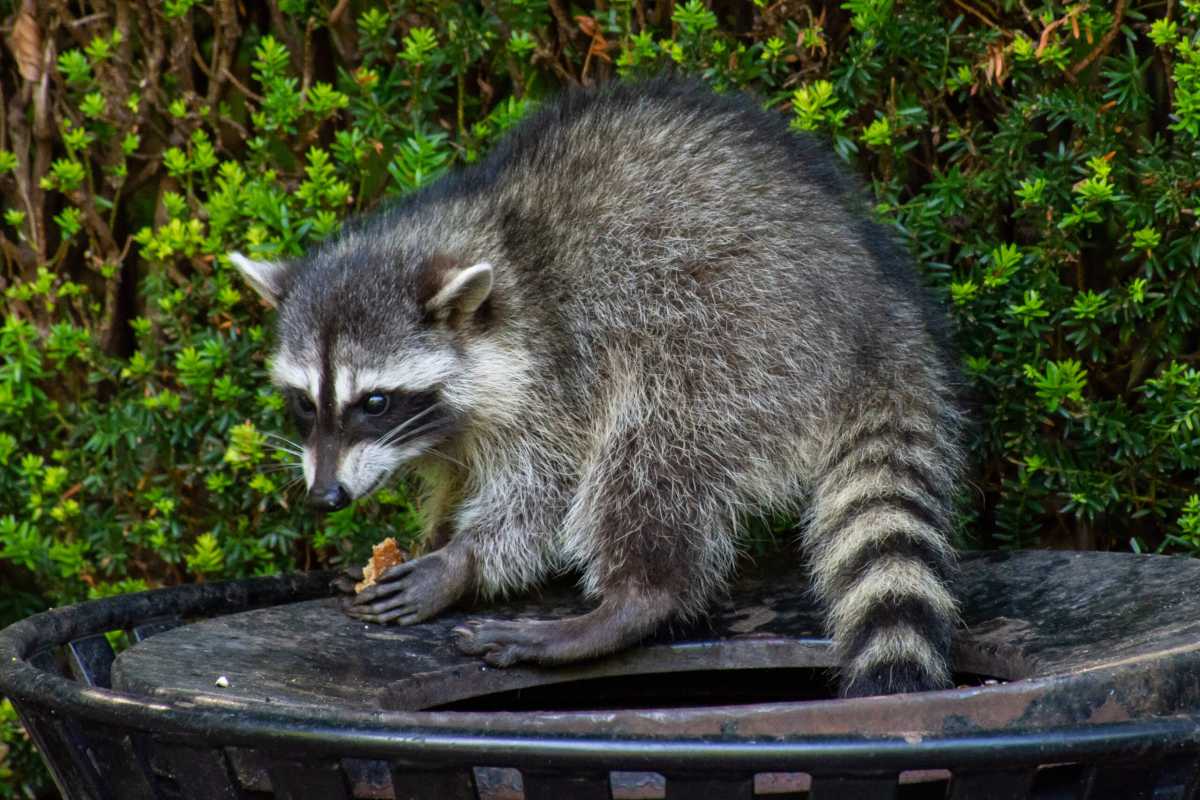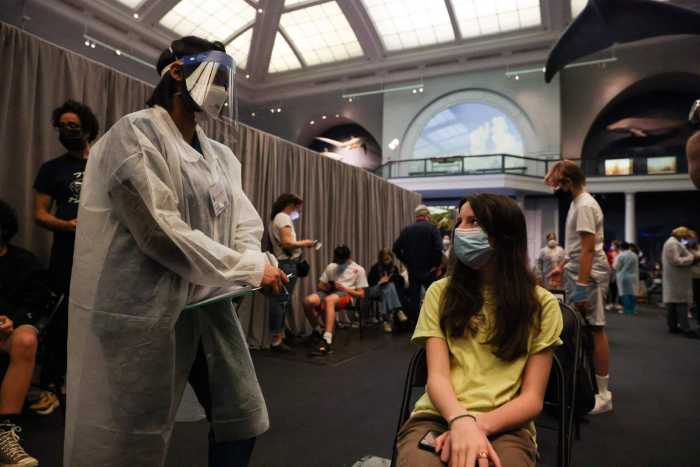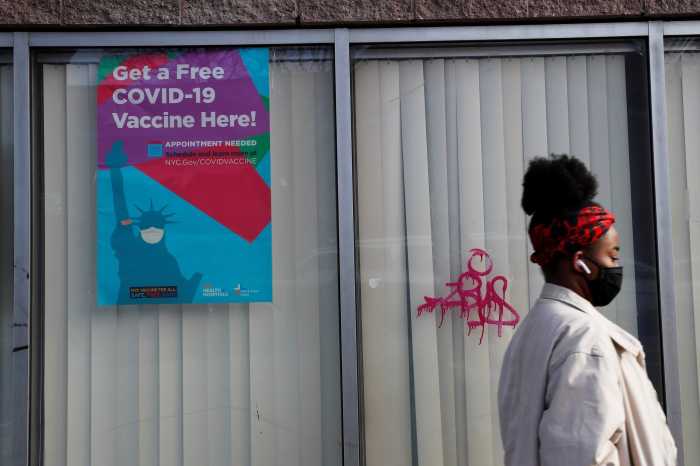The city’s launching a wholly different kind of vaccine campaign in Manhattan — this one focused on trash pandas roaming through two public parks.
Members of the city’s Health and Parks Department announced Tuesday it would begin distributing bait containing an oral rabies vaccine at Inwood Hill and Fort Tryon Parks for raccoons that frequent the Upper Manhattan greenspaces.
The effort aims to vaccinate the critters against the potentially deadly rabies virus, thereby protecting humans and their pets who may come into contact with them. In the next few weeks, the city will also spread the vaccine bait in other parks that raccoons are known to frequent.
“Raccoons are a natural part of our city,” said Richard Simon, wildlife unit director for the city’s Parks Department. “Although it’s very rare to come into contact with a rabid raccoon, we want to remind all New Yorkers that if you see a raccoon, you should give them space — never approach or try to feed them.”
Rabies, a virus that attacks the central nervous system, is commonly found among raccoons and can spread to pets and humans through bites from an infected animal. Left untreated, it can be fatal, but quick medical care before symptoms start can prevent death or serious illness.
So far, the city’s Health Department reported 13 rabid animals found within the five boroughs this year, including one raccoon from Manhattan. The city also logged, among rabid critters, one raccoon and one cat in the Bronx; seven raccoons and two cats on Staten Island; and one raccoon from Queens.
The ORV bait is contained within brown, ketchup packet-like devices that are fish-scented and contain a small amount of pink liquid vaccine. The odor attracts the raccoons to the bait, and when they consume it, they become protected against rabies infection.
The bait is not harmful to humans, though exposure to the liquid may cause a rash. If you come into contact with the liquid, wash your hands with warm, soapy water; notify the Poison Control Center by calling 800-222-1222 and speak with your doctor.
Additionally, the bait does not harm pets who ingest it, though they may become sick if they consume several baits.
Though raccoons are nocturnal creatures, it’s not uncommon to see one roaming during the day. In most cases, the Health Department advised, the critters are not sick, but rather looking for food.
Nevertheless, the agency advises New Yorkers to observe raccoons from a distance and not to approach or feed them. If you see a raccoon or any other animal that appears ill or behaving aggressively, report it to 311.
“New Yorkers should ensure their pets are up to date on vaccinations and avoid interactions with wild mammals,” added Health Commissioner Dr. Dave Chokshi. “From rabies in raccoons to COVID in our city, vaccines work to help keep New Yorkers safe this summer.”
If you are bitten or scratched by an animal, the Health Department advises washing the wound immediately with lots of soap and water, then seek medical care from a doctor. To report a bite, call the Animal Bite Unit at 212-676-2483 on weekdays between 9 a.m. and 5 p.m. (during all other hours, call 212-764-7667).




































